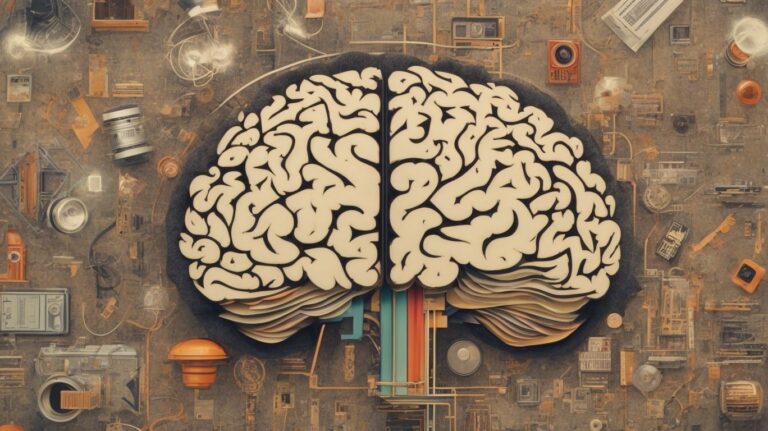High school psychology is an important subject that introduces students to the fascinating world of human behavior and the mind.
In this article, we will delve into the curriculum of high school psychology classes, exploring topics such as Introduction to Psychology, Biological Psychology, Cognitive Psychology, and more. We will also discuss the skills that students can expect to acquire, including critical thinking, analytical skills, and empathy.
Join us as we explore the significance of high school psychology and the valuable knowledge and skills it provides to students.
Contents
- 1 Key Takeaways:
- 2 What Is High School Psychology?
- 3 Why Is High School Psychology Important?
- 4 What Is the Curriculum of High School Psychology?
- 5 What Skills Will Students Learn in High School Psychology?
- 6 Frequently Asked Questions
- 6.1 What topics are typically covered in the curriculum of high school psychology classes?
- 6.2 Are there any differences in the curriculum of high school psychology classes among different schools?
- 6.3 Is the curriculum of high school psychology classes based on current research and practices?
- 6.4 How is the curriculum of high school psychology classes structured?
- 6.5 Are high school psychology classes beneficial for students who do not plan on pursuing a career in psychology?
- 6.6 What resources are typically used in the curriculum of high school psychology classes?
Key Takeaways:
- High school psychology classes cover a wide range of topics, from cognitive and social psychology to research methods and psychological disorders.
- These classes not only teach students about the human mind and behavior, but also help develop critical thinking, analytical, and communication skills.
- Understanding psychology can also promote empathy and understanding, making high school psychology an important and relevant subject for students.
What Is High School Psychology?
High school psychology is an educational discipline that introduces students to the scientific study of behavior and mental processes, providing valuable insights into human cognition, personality, and psychological disorders.
Studying psychology at the high school level allows students to explore and understand the principles of this field, enhancing their understanding of human behavior and mental health.
By aligning with National Standards and curriculum guidelines, high school psychology programs provide a structured framework for students to delve into topics such as memory, learning, motivation, and social psychology.
The courses often integrate practical applications and real-world examples, fostering critical thinking and analytical skills crucial for their academic and personal growth.
Why Is High School Psychology Important?
High school psychology holds significant importance in the educational landscape, offering students and teachers valuable insights into human behavior, cognition, personality, and psychological disorders, fostering a deeper understanding of the complexities of the human mind and behavior.
High school psychology covers a wide range of topics, including memory, perception, learning, and social interactions. This provides students with valuable insights into the complexities of the human mind.
Understanding psychology can not only help individuals understand themselves and others, but it also equips them with tools to navigate everyday challenges.
Moreover, the study of psychology at this level has a significant impact on the education field, shaping teaching methods and improving educators’ ability to support diverse learning styles and address student well-being.
What Is the Curriculum of High School Psychology?
The curriculum of high school psychology encompasses a comprehensive exploration of various psychological domains, aligning with National Standards and APA guidelines, and equipping students with a scientific understanding of human behavior, cognition, and mental processes.
The curriculum for this course covers a wide range of topics, including research methods, psychological disorders, social psychology, developmental psychology, and more.
Students will be introduced to key concepts such as the history of psychology, ethical considerations in research, and the biological basis of behavior.
Throughout the course, there will be a focus on critical thinking, analysis of psychological studies, and application of psychological principles to real-life scenarios. Additionally, students will have the opportunity to explore the impact of culture, diversity, and individual differences on behavior and mental processes.
Introduction to Psychology
The introduction to psychology in the high school curriculum provides students with a foundational understanding of the discipline, exploring the fundamental principles of human behavior, cognition, and mental processes.
Students are introduced to the historical development of psychology, including influential figures such as Sigmund Freud, Wilhelm Wundt, and William James.
They delve into the diverse fields within psychology, such as social, cognitive, and developmental psychology, gaining insight into the various factors that shape individual and group behaviors.
The introductory phase familiarizes students with research methods and ethical considerations in psychological studies. It equips them with critical thinking skills and the ability to analyze psychological phenomena, preparing them for more advanced explorations in subsequent courses.
Biological Psychology
The section on biological psychology in the high school curriculum delves into the intricate connections between the brain, behavior, cognition, perception, and memory, fostering a comprehensive understanding of the biological determinants of human psychology.
Studying biological psychology provides students with a fascinating insight into how the brain dictates our emotions, thoughts, and actions. It delves into the biological mechanisms influencing behaviors, from the release of neurotransmitters to the intricate structures of the brain that underpin our mental processes.
This module not only explores the physiological aspects of psychology but also sheds light on the cognitive processes that contribute to human experience. Through this exploration, students gain a profound appreciation for the biological basis of perception and the complexities of memory encoding and retrieval.
Cognitive Psychology
Cognitive psychology within the high school curriculum delves into the complexities of mental processes, memory, intelligence, perception, and problem-solving, providing students with valuable insights into the intricacies of human cognition.
By integrating cognitive psychology into the curriculum, students gain a comprehensive understanding of how the mind functions and the factors that influence human behavior.
They explore the mechanisms behind memory formation, retrieval, and forgetting, as well as the role of intelligence in problem-solving and decision-making processes.
This educational approach fosters critical thinking skills, encourages students to analyze their own cognitive processes, and helps them develop strategies to improve memory retention and enhance learning outcomes.
Perception and attention are also central to cognitive psychology, allowing students to study how individuals perceive and interpret the world around them, including the impact of biases and cognitive shortcuts on decision-making.
Developmental Psychology
The segment on developmental psychology in the high school curriculum focuses on the biological, cognitive, and socio-emotional changes that occur across the lifespan, addressing aspects related to gender, diversity, and the environmental influences on human development.
Students will delve into the scientific study of how individuals develop and change over time, exploring the biological processes such as genetics, hormones, and brain development.
The curriculum delves into the cognitive changes, including memory, problem-solving, language development, and the ways adolescents and teenagers think and learn.
In addition, this segment also emphasizes socio-emotional growth, covering topics like forming relationships, identity formation, emotional regulation, and the impact of family, peers, and society on mental health and well-being.
Thus, high school students gain an in-depth understanding of the developmental processes and are equipped with a comprehensive view of the factors that shape human development.
Social Psychology
Social psychology in the high school curriculum explores the dynamics of human interactions, addressing aspects related to social perception, motivation, gender, diversity, and the influence of social contexts on individual behavior and attitudes.
Social psychology offers students a deeper understanding of how individuals perceive and interpret the world around them, and how these perceptions influence their actions and decisions.
By incorporating this field into the curriculum, students can analyze the effects of social influence and explore the complexities of human behavior in different social environments.
Studying social psychology also helps develop critical thinking skills, empathy, and a greater appreciation for the diversity within society.
Abnormal Psychology
The segment on abnormal psychology in the high school curriculum provides an in-depth understanding of psychological disorders, their manifestations, and possible treatment approaches, fostering empathy and awareness about mental health challenges.
Studying abnormal psychology allows students to delve into the complexities of conditions such as depression, anxiety disorders, neurodevelopmental disorders, and psychotic disorders. By exploring the symptoms and underlying causes of these disorders, students gain insights into the lived experiences of individuals dealing with mental health issues.
This educational module also covers a range of treatment options, including therapy, medication, and other interventions, thus equipping students with a broader understanding of how these disorders can be addressed. In addition, discussions on the societal stigma associated with psychological disorders contribute to a more inclusive and compassionate school environment.
Personality Psychology
Personality psychology in the high school curriculum explores the complexities of individual differences in behavior, cognition, and motivation, providing insights into the factors that shape and influence personality traits.
Studying personality psychology enables students to comprehend the various theories and concepts related to personality development. This includes exploring the impact of nature and nurture on an individual’s personality, the significance of cultural and social influences, and the role of genetics and environment.
Understanding these factors contributes to creating a well-rounded understanding of human behavior and mental processes, enriching students’ knowledge of themselves and others.
Research Methods
The section on research methods in the high school curriculum introduces students to the scientific methodologies used in the study of behavior, fostering critical thinking and analytical skills in conducting psychological inquiries.
Students learn about various research designs such as experimental, correlational, and observational methods. They gain insights into how data is collected, analyzed, and interpreted in psychological studies.
Through hands-on activities and projects, students develop skills in formulating research questions, designing experiments, and drawing valid conclusions based on evidence. They also explore ethical considerations and the importance of adhering to ethical guidelines in conducting psychological research, promoting responsible and ethical practices in the field of psychology.
Psychological Disorders
The segment on psychological disorders in the high school curriculum addresses various mental health conditions, their biological and cognitive underpinnings, and potential treatment modalities, fostering an understanding of the complexities of psychological well-being.
This segment aims to educate students about common psychological disorders such as depression, anxiety, bipolar disorder, and schizophrenia. It highlights their prevalence and impact on individuals, diving into the biological aspects including genetic predispositions and brain chemistry. This provides a comprehensive understanding of these conditions.
The curriculum also explores the cognitive aspects, examining how thoughts, emotions, and behaviors are interconnected in these disorders. It introduces students to various treatment modalities like therapy, medication, and lifestyle modifications, emphasizing the importance of seeking professional help for mental health concerns.
By covering these critical aspects, the curriculum contributes to the destigmatization of psychological disorders and promotes a more empathetic and informed approach towards mental health.
Treatment of Psychological Disorders
The segment on the treatment of psychological disorders in the high school curriculum delves into the various approaches and interventions aimed at promoting mental health and well-being, fostering empathy and awareness about the significance of psychological care.
In this segment, students are introduced to the different therapeutic modalities used to address psychological disorders. These include cognitive-behavioral therapy, mindfulness practices, and interpersonal therapy.
The curriculum also incorporates discussions on the importance of destigmatizing mental health issues and seeking professional help when needed. This educational approach helps students develop a deeper understanding of mental health and encourages them to cultivate supportive and inclusive environments within their communities.
What Skills Will Students Learn in High School Psychology?
High school psychology equips students with a diverse set of skills, including critical thinking, analytical capabilities, communication proficiency, problem-solving acumen, and empathy, fostering a holistic development essential for their academic and personal growth.
As students delve into the study of psychology, they develop the ability to critically analyze and evaluate information, enabling them to approach problems with a discerning eye.
Through studying different psychological theories and concepts, they learn to think abstractly and reason logically, honing their critical thinking skills.
The subject encourages students to apply problem-solving techniques to understand complex human behaviors, fostering their capability to address challenges effectively.
Alongside this, their enhanced communication proficiency is evident as they comprehend the nuances of human interaction and develop the articulation needed to convey their thoughts and ideas coherently.
High school psychology fosters empathy as students gain insight into different perspectives, enhancing their understanding of diverse emotional experiences and nurturing their ability to relate to others with compassion.
Critical Thinking
High school psychology nurtures critical thinking skills in students, enabling them to analyze, evaluate, and reason about complex psychological concepts and real-world scenarios, fostering a deeper understanding of human behavior and cognition.
Through the study of psychology, students are encouraged to develop their cognitive reasoning abilities, allowing them to question assumptions and form evidence-based conclusions.
This process involves examining diverse perspectives, practicing empathy, and honing their analytical skills, all of which are integral components of critical thinking.
By applying critical thinking skills to psychological theories, students can better comprehend and interpret the complexities of human emotions, behaviors, and mental processes.
Analytical Skills
High school psychology fosters the development of analytical skills in students, enabling them to engage in scientific inquiry, conduct research, and apply problem-solving approaches to psychological phenomena and inquiries.
By exploring topics such as cognitive processes, abnormal behavior, and social interaction, students can enhance their critical thinking abilities and develop a deeper understanding of the complexities of the human mind and behavior.
Through hands-on experiments, class discussions, and research projects, students learn to analyze data, identify patterns, and draw evidence-based conclusions, all crucial skills for scientific inquiry and research in the field of psychology.
Communication Skills
High school psychology enhances students’ communication skills, enabling them to effectively interact, present ideas, express thoughts, and demonstrate empathy, fostering well-rounded communicative abilities essential for their personal and professional growth.
Through the study of psychology in high school, students can gain a deeper understanding of human behavior, emotions, and cognitive processes. This equips them with valuable knowledge and insight to navigate social interactions with greater understanding and sensitivity.
Students also learn about the nuances of nonverbal communication, active listening, and conflict resolution, which are crucial for effective interpersonal dynamics.
By diving into topics such as perception, language development, and social influences, they can gain valuable insights into how communication is shaped by individual differences, cultural diversity, and societal factors.
Problem-Solving Skills
High school psychology cultivates students’ problem-solving skills, give the power toing them to apply critical thinking, analysis, and reasoning to address psychological challenges and real-life situations, fostering adaptive and strategic problem-solving capabilities.
Through studying psychology in high school, students develop a deeper understanding of human behavior, mental processes, and emotional responses, enabling them to navigate intricate interpersonal dynamics and complex social situations with greater insight and sensitivity.
By integrating knowledge of cognitive biases, defense mechanisms, and personality theories, students acquire the ability to recognize and interpret diverse perspectives. This is crucial for effective problem-solving in the contemporary world.
Empathy and Understanding
High school psychology promotes empathy and understanding in students, enabling them to comprehend diverse perspectives, relate to others’ experiences, and develop a profound awareness of human behavior and mental processes.
By diving into the complexities of the human mind, empathy and understanding are nurtured as students learn about the factors influencing behavior, emotions, and interpersonal relationships.
Through discussions of psychological theories, case studies, and real-life examples, students gain valuable insights into the interplay between nature and nurture, individual differences, and the impact of social and cultural influences on cognition and behavior.
As students explore topics such as social psychology, developmental psychology, and cognition, they are encouraged to consider the diverse experiences and perspectives that shape individuals.
This encourages them to approach interpersonal interactions and societal issues with sensitivity and open-mindedness, thereby fostering an environment of empathy and understanding within the classroom and beyond.
Frequently Asked Questions
What topics are typically covered in the curriculum of high school psychology classes?
The curriculum of high school psychology classes usually covers topics such as the history of psychology, research methods, personality, abnormal psychology, social psychology, and developmental psychology.
Are there any differences in the curriculum of high school psychology classes among different schools?
Yes, there may be slight variations in the curriculum of high school psychology classes among different schools. Some schools may focus more on certain topics or include additional topics, but the overall content should be similar.
Is the curriculum of high school psychology classes based on current research and practices?
Yes, the curriculum of high school psychology classes is typically based on current research and practices in the field of psychology. This ensures that students are learning up-to-date information and theories.
How is the curriculum of high school psychology classes structured?
The curriculum of high school psychology classes is usually structured in a chronological or thematic manner. It may begin with an overview of the history of psychology and progress to more specific topics, or it may focus on certain themes and relate different topics to those themes.
Are high school psychology classes beneficial for students who do not plan on pursuing a career in psychology?
Yes, high school psychology classes can be beneficial for all students, regardless of their future career plans. Learning about psychology can help students better understand themselves and others, develop critical thinking skills, and improve their overall well-being.
What resources are typically used in the curriculum of high school psychology classes?
The curriculum of high school psychology classes may include a variety of resources, such as textbooks, online articles and videos, case studies, and real-life examples. Some classes may also include hands-on activities and discussions to engage students in the subject matter.



